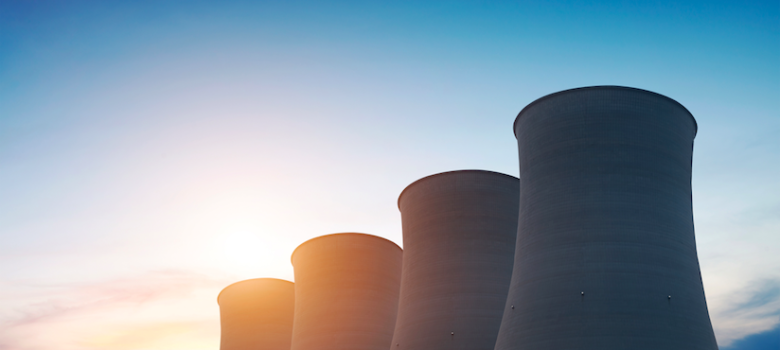
Nuclear is considered by many a ‘clean’ form of energy; but this viewpoint is controversial for a reason. With Chernobyl – and the more recent Fukushima disaster – at the forefront of social consciousness, the idea of nuclear having a place in the modern energy mix understandably terrifies some people.
Nuclear power has for a long time arguably formed a comparatively less pollutive alternative to coal power in the UK. However, it can be toxic for humans and wildlife. The power of nuclear technology is evident in the fact it is used in chemical warfare. We’ve rounded up the effects of nuclear power generation.
Nuclear impacts on the environment
True, nuclear power may not be as obviously pollutive as coal, but the chemicals it releases can contaminate groundwater, air and plants – and this pollution lingers for decades.
While nuclear energy does not produce carbon emissions directly, the construction of plants, uranium mining and manufacturing operations all produce C02 commissions on a huge scale. This all contributes to global warming.
Nuclear impacts on human health
Nuclear accidents – although rare – can be catastrophic. Exposure to radiation permanently damages DNA and can cause cancer.
However, to put these events into context, a study by NASA on links between mortality and method of energy production suggested that: ‘if nuclear power never existed, the energy it supplied almost certainly would have been supplied by fossil fuels instead (overwhelmingly coal), which cause much higher air pollution-related mortality and GHG emissions per unit energy produced.’ The health effects of air pollution caused by greenhouse gases should not be underestimated and coal undoubtedly causes it more directly than nuclear. So, nuclear is preferable to coal in this respect. But that’s not saying much.
However, this study only does not compare nuclear with renewable technologies, which have no side effects for human health. There are some emissions released during the production of wind turbines and solar panels, but once they are up and running they can last for years with minimal maintenance. It therefore seems illogical that the current Government are consistently cutting funding.
What is the UK Government’s stance on nuclear power?
The UK Government is moving away from coal power as part of its commitment to reduce greenhouse gases. However they are still investing in nuclear power as it comes under their blanket of ‘low-carbon technologies‘. All of our current nuclear plants are coming to the end of their working lives, and are due to be decommissioned in the next few years. The Government’s new big hope is Hinkley Point C. This, however, is looking shaky, as it is mired in controversy and has been hugely delayed. There is a danger that it will not be built before other plants close, leaving the UK with an energy deficiency.
Alternatives to nuclear power
Despite successive UK governments’ preoccupation with nuclear energy, there are several other viable forms of energy generation it could be investing in. It’s good news that we are moving away from coal power plants, which are all set to close by 2020, in line with carbon reduction targets. However, we need to replace them with something – and ideally not more nuclear power stations. Solar and wind are capable of generating huge amounts of energy in the right conditions. These technologies are currently falling foul of a vicious cycle, as the government doesn’t believe they can generate significant enough amounts of electricity, but there is currently not enough investment to build them on a big enough scale for maximum efficiency. Tidal power is also set to become a big player in the UK’s energy mix, and this will hopefully open the door for our government to seriously consider other renewables.
What are your thoughts on nuclear power? Should it be considered a ‘clean’ form of energy generation? Let us know in the comments below!













Your assertion: “Exposure to radiation permanently damages DNA and can cause cancer.” is rather meaningless because it mentions no numbers. A very large dose of radiation causes acute radiation sickness (ARS) followed by death within a few days, but background levels cause far less DNA damage than even every-day oxidation. And most DNA damage (single strand) is repaired very quickly. Radiotherapists administer large doses in order to kill tumour cells, and their skill is to minimise the dose to surrounding tissues, so that they can make a full recovery. If you want to check your facts there’s a great new book from Oxford Emeritus Professor of Nuclear Physics, Wade Allison, called Nuclear Is For Life. In it he suggests new radiation safety regulations based on actual evidence of cancer rates and ARS deaths.
The challenge to renewable resources such as wind and solar as energy sources is on what extent can we control them, how reliable are they in-terms of availability, and how efficient they are. with energy sources like coal and nuclear materials which has proven to be reliable sources of energy it is almost impossible to switch to renewable sources.
Controlling renewables is not so much a problem as people believe, There are many energy storage solution available both on a huge industrial scale, including pumped hydro, flywheel, sand and seawater storage, and smaller individual home size battery storage solutions. The sun always comes up and the tide always comes back in.
heeeeeeeeeeeeeeeeeeeeeeeeeeeeeeeeeeeeeeeeeeeeeeeeck
who is the auther